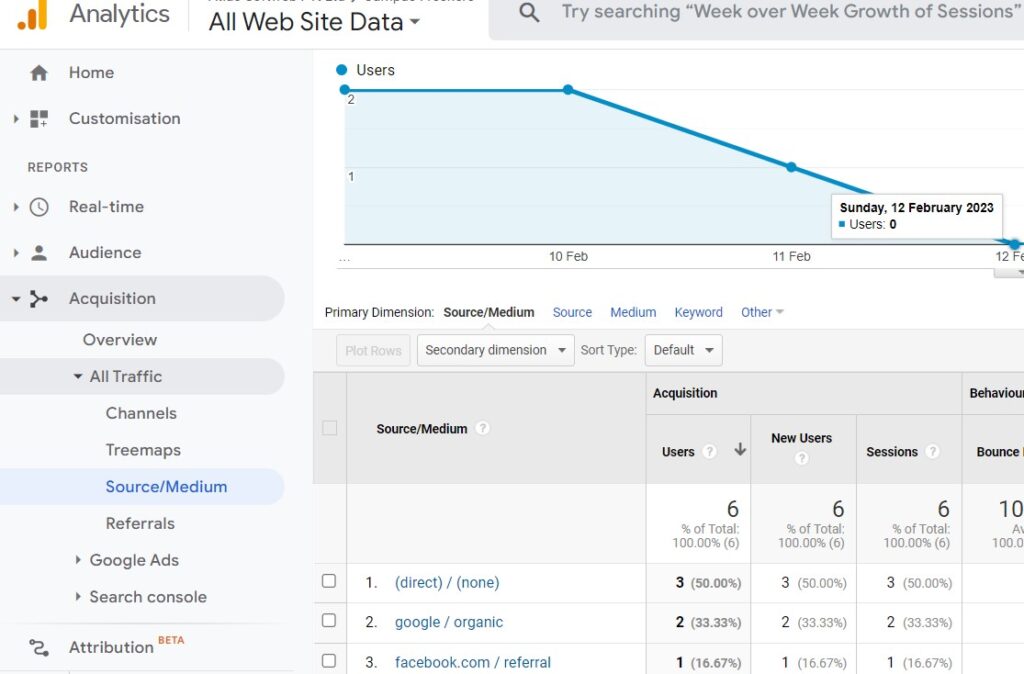Did you observe that your website traffic has gone down drastically and suddenly without any technical errors? This would most likely be due to Google’s penalty on your website. If your website has been penalized by Google, it means that it has violated Google’s guidelines in some way, and as a result, it has lost its ranking and visibility in search results.
What is Google Penalty?
A Google penalty is a negative impact on a website’s ranking and visibility in search results due to a violation of Google’s guidelines. When a website does not follow Google’s quality guidelines or uses manipulative tactics to improve its rankings, it can be penalized by Google. There are two types of penalties: manual and algorithmic.
Manual penalties occur when a human reviewer at Google determines that a website is in violation of Google’s guidelines. This can happen if the website has unnatural links, spammy content, or participates in other black hat SEO practices.
Algorithmic penalties occur when a website is affected by an algorithm update that targets specific issues. For example, the Google Penguin algorithm targets websites that have low-quality or spammy links.
When a website is penalized by Google, it can have a significant negative impact on its organic traffic, rankings, and ultimately its business. It is important for website owners to avoid these penalties by following Google’s guidelines and using ethical SEO practices.
Why was your website penalized by Google?
There are many reasons why a website may be penalized by Google. In general, websites are penalized because they violate Google’s quality guidelines or engage in manipulative tactics to improve their rankings. Some common reasons why a website may be penalized include:
- Unnatural backlinks: If a website has a large number of low-quality or spammy backlinks pointing to it, it may be penalized by Google. This can happen if the website has participated in link schemes or purchased links in an attempt to improve its rankings.
- Duplicate content: If a website has a large amount of duplicate content, it may be penalized by Google. This can happen if the website copies content from other websites or creates pages with very similar content.
- Thin content: If a website has a large number of pages with very little content or content that is of low quality, it may be penalized by Google. This can happen if the website has created pages with little or no value in an attempt to improve its rankings.
- Keyword stuffing: If a website uses the same keyword or phrase repeatedly in its content or meta tags in an attempt to manipulate its rankings, it may be penalized by Google.
- Cloaking: If a website shows different content to search engines than it does to human visitors, it may be penalized by Google.
It is important to identify the reason why your website has been penalized by Google in order to take the necessary steps to fix the issue and avoid future penalties.

That said, here are some steps you can take to remove a Google penalty from your site:
How to Recover From Google Penalties?
- Identify the penalty: The first step is to identify the type of penalty your site has received. Google penalties can be manual or algorithmic, and the cause of the penalty could be due to things like unnatural links, thin content, or keyword stuffing. You can use Google Search Console to check for any manual penalties, and tools like SEMRush or Ahrefs to check for algorithmic penalties.
- Fix the issue: Once you have identified the problem, take steps to fix it. For example, if you have been penalized for unnatural links, you will need to identify the bad links and remove them or disavow them. If your site has thin content, you will need to add more high-quality content to your site.
- Submit a reconsideration request: If you have received a manual penalty, you will need to submit a reconsideration request to Google. In the request, explain the steps you have taken to fix the issue and provide evidence of the changes you have made.
- Be patient: It can take time for Google to review your reconsideration request and remove the penalty. Be patient and continue to work on improving your site’s content and following Google’s guidelines.
- Avoid future penalties: Once your penalty has been removed, it is important to avoid future penalties. Make sure you are following Google’s guidelines, and keep an eye on your site’s backlinks and content to ensure they are high quality and relevant.
Conclusion:
It is important to remove a Google penalty because it can have a significant negative impact on a website’s traffic, visibility, and ultimately its business. When a website is penalized by Google, it may lose its ranking in search results, which can result in a decrease in organic traffic and potential customers. This can be particularly damaging for websites that rely on organic traffic for their business.
In addition to the loss of traffic, a Google penalty can also harm a website’s reputation. If a website is penalized for engaging in manipulative or unethical practices, it may lose the trust of its audience and potential customers. This can be difficult to recover from, even after the penalty is removed.
Furthermore, it is important to remove a Google penalty to avoid future penalties. If a website continues to engage in manipulative or unethical practices, it may be penalized again, which can have an even greater negative impact on the website’s traffic and business.
Overall, it is important to remove a Google penalty to restore a website’s traffic, visibility, and reputation, and to avoid future penalties by following Google’s guidelines and using ethical SEO practices.
